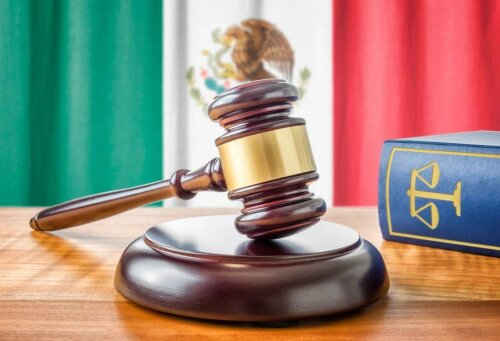Best Conveyancing Lawyers in Mexico City
Share your needs with us, get contacted by law firms.
Free. Takes 2 min.
Free Guide to Hiring a Real Estate Lawyer
List of the best lawyers in Mexico City, Mexico
About Conveyancing Law in Mexico City, Mexico
Conveyancing in Mexico City refers to the legal process of transferring ownership of real estate property from one party to another. This includes both residential and commercial properties. The process involves various legal checks and documentation to ensure that the transaction is legitimate, the property title is clean, and the new owner is properly registered. In Mexico City, conveyancing is governed by both federal and local laws, and the process often requires the involvement of a licensed notary public, as well as compliance with specific municipal regulations.
Why You May Need a Lawyer
Engaging a lawyer for conveyancing in Mexico City is highly recommended due to the complexity of local property laws and the importance of ensuring all documents are accurate and complete. Common situations where you may require legal help include:
- Purchasing or selling real estate
- Conducting due diligence on a property
- Identifying and resolving title disputes or encumbrances
- Understanding tax implications and fees
- Drafting or reviewing contracts of sale and purchase
- Handling inheritance or gifting of property
- Registering the property transfer with public authorities
- Securing financing and coordinating with lenders
Local Laws Overview
Several key legal aspects are particularly relevant to conveyancing in Mexico City:
- Notary Public Involvement: All property transfers must be formalized before a notary public, who is responsible for verifying documentation and registering the transaction with the Public Registry of Property.
- Title Search and Due Diligence: A comprehensive title search is essential for ensuring the property is free of liens, debts, or other encumbrances.
- Foreign Ownership Restrictions: While foreigners can own property in Mexico City, certain rules apply, especially in other areas such as the Restricted Zone near coastlines or borders.
- Property Taxes and Fees: Transfer taxes, notarial fees, and registration costs are significant and must be calculated ahead of time.
- Official Valuations: Properties are typically valued for tax and registration purposes by local authorities, which can affect overall transaction costs.
- Municipal Regulations: Zoning laws and land use restrictions can affect the outcome or intended use of the property.
Frequently Asked Questions
What is the role of a notary public in property transactions?
A notary public in Mexico City acts as a public official who authenticates the property transaction, verifies the legality of documents, collects taxes, and registers the transfer with the Public Registry of Property.
Can foreigners buy property in Mexico City?
Yes, foreigners can buy property in Mexico City without major restrictions that apply elsewhere in Mexico, such as the Restricted Zone near the coast or borders.
What documents are required for conveyancing?
Typically needed documents include the seller's proof of ownership (property title), official identification, proof of tax payments, a cadastral certificate, valuation documents, and marriage certificates if applicable.
How long does the conveyancing process take?
The process can take from a few weeks to several months, depending on the property's legal status, document readiness, and the efficiency of the parties involved.
What are the main costs involved in buying property?
Buyers should expect to pay transfer taxes, notarial fees, registration costs, and sometimes agent commissions. The total costs can be a significant percentage of the property value.
Who is responsible for paying these costs?
Although negotiation is possible, traditionally the buyer is responsible for most transaction costs, including notarial and registration fees.
What risks should I be aware of?
Risks include buying from someone who is not the lawful owner, properties with outstanding debts, zoning violations, or missing documentation. A lawyer helps mitigate these risks.
Is a lawyer required for conveyancing in Mexico City?
While not mandatory, hiring a lawyer is highly advisable to guide you through the process, review contracts, and ensure proper legal compliance.
How can I verify the property's legal status?
A thorough title search performed through the Public Registry of Property can verify ownership and reveal any existing liens or claims on the property.
What happens after the transaction is completed?
The notary files the registered deed with the Public Registry of Property, and the new owner's details are made official. You will also need to pay annual property taxes going forward.
Additional Resources
For more information or assistance, the following resources can be helpful:
- Public Registry of Property (Registro Público de la Propiedad)
- Local Notary Public Associations (Colegio de Notarios de la Ciudad de México)
- Ministry of Urban Development and Housing (Secretaría de Desarrollo Urbano y Vivienda)
- Federal Consumer Protection Agency (Procuraduría Federal del Consumidor - PROFECO)
- Municipal property tax offices (Tesorería)
Next Steps
If you need legal assistance with conveyancing in Mexico City, start by gathering all relevant property documents and identification. Consult with a reputable lawyer or notary public who specializes in real estate transactions. Prepare a clear list of questions and concerns before your appointment. Consider getting a written estimate of all costs and fees involved. Remember to conduct thorough due diligence on the property and ensure all taxes and charges are up to date. Taking these steps will help make your property transaction secure and legally compliant.
Lawzana helps you find the best lawyers and law firms in Mexico City through a curated and pre-screened list of qualified legal professionals. Our platform offers rankings and detailed profiles of attorneys and law firms, allowing you to compare based on practice areas, including Conveyancing, experience, and client feedback.
Each profile includes a description of the firm's areas of practice, client reviews, team members and partners, year of establishment, spoken languages, office locations, contact information, social media presence, and any published articles or resources. Most firms on our platform speak English and are experienced in both local and international legal matters.
Get a quote from top-rated law firms in Mexico City, Mexico — quickly, securely, and without unnecessary hassle.
Disclaimer:
The information provided on this page is for general informational purposes only and does not constitute legal advice. While we strive to ensure the accuracy and relevance of the content, legal information may change over time, and interpretations of the law can vary. You should always consult with a qualified legal professional for advice specific to your situation.
We disclaim all liability for actions taken or not taken based on the content of this page. If you believe any information is incorrect or outdated, please contact us, and we will review and update it where appropriate.

















